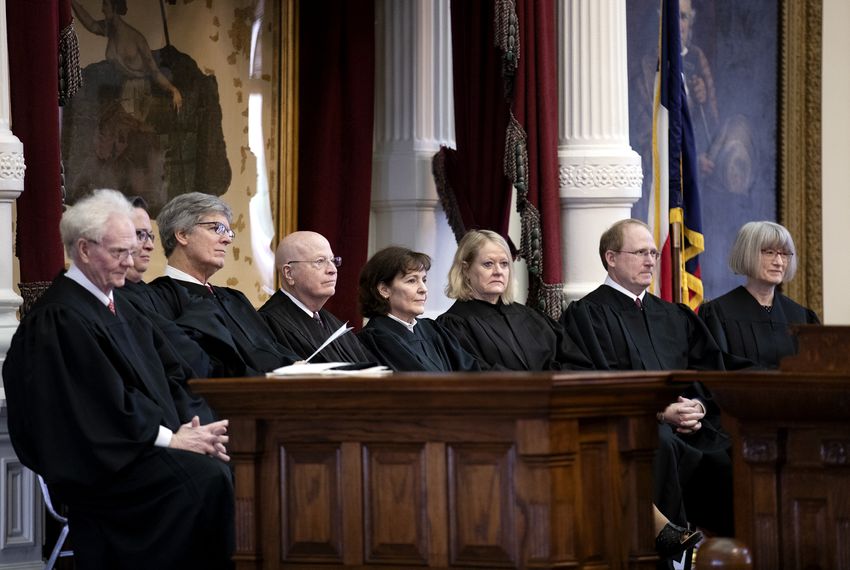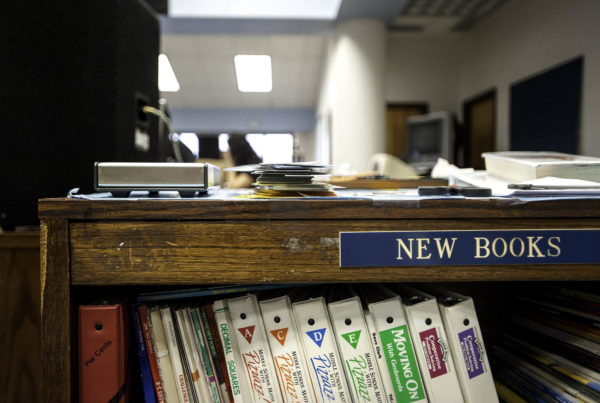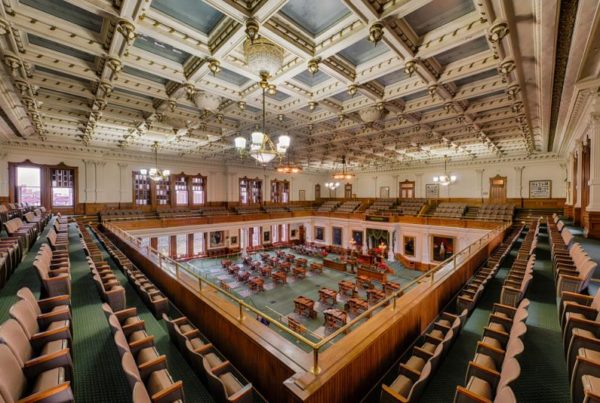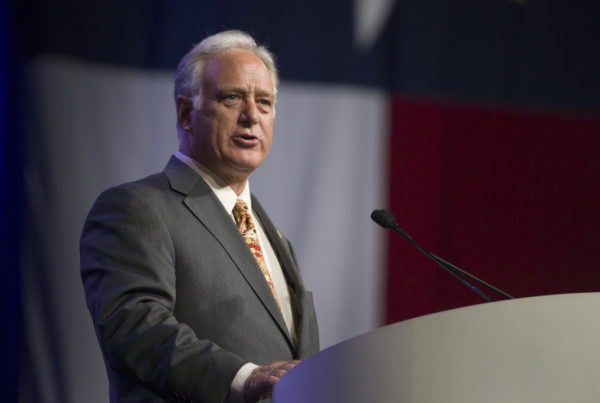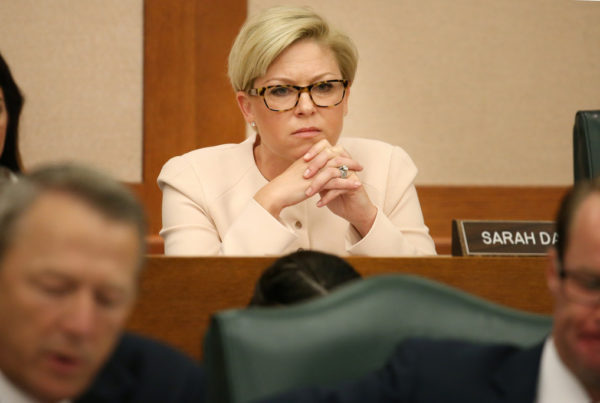Texas Tribune Reporter Emma Platoff talked about her story, reprinted below on Texas Standard.
In a major blow to the state’s government transparency laws, Texas’ highest criminal court has struck down a significant provision of the Texas Open Meetings Act, calling it “unconstitutionally vague.”
That law, which imposes basic requirements providing for public access to and information about governmental meetings, makes it a crime for public officials to “knowingly [conspire] to circumvent this chapter by meeting in numbers less than a quorum for the purpose of secret deliberations.” That provision aims to keep public officials from convening smaller meetings — without an official quorum present — to discuss public business outside the view of the taxpayers and the media.
Craig Doyal, the Montgomery County judge, was indicted under that statute for allegedly conducting “secret deliberations” — without a quorum of the commissioners court present — about a November 2015 county road bond. Doyal filed to have the charges dismissed, claiming the statute was unconstitutional. The case eventually made it to the Texas Court of Criminal Appeals, which handed him a victory Wednesday. Two judges on the nine-member, all-Republican court dissented.
“We do not doubt the legislature’s power to prevent government officials from using clever tactics to circumvent the purpose and effect of the Texas Open Meetings Act,” Presiding Judge Sharon Keller wrote for the majority. “But the statute before us wholly lacks any specificity, and any narrowing construction we could impose would be just a guess, an imposition of our own judicial views. This we decline to do.”Attorneys for Doyal argued months ago that the case should not be interpreted as a broad “take-down of the entire Texas Open Meetings Act.”
“This case is not about discussions of public matters in a quorum,” they wrote in a July 2018 brief. “This case is not about shutting out the public and the press from the political process.”
But open-government advocates warned that the ruling, while specific to one slice of the open meetings act, undermines its aims.
“I’m disappointed in the ruling,” said Kelley Shannon, executive director of the Freedom of Information Foundation of Texas. “Some people will use it as a chance to try to get around the spirit of the law. But the vast majority of people want to follow the law and want the public to understand government and participate in government. The vast majority of public officials know they can’t go around in secret and deliberate.”
Joe Larsen, an open-government lawyer who had defended the law in the case, said the decision “removes a powerful disincentive” put in place to keep public officials from hiding public business.
Larsen said he will likely ask the high court to reconsider the case, given its high stakes.
“This provision is important because it basically addresses what are essentially closed meetings where the members of the governmental body meet in numbers less than a quorum but are acting as a quorum,” Larsen explained. “It undermines the strength of the Open Meetings Act.”
Judge Kevin Yeary, who wrote a dissenting opinion, seemed to agree about the provision’s importance.
“To provide a true disincentive, the stigma of a criminal penalty is necessary,” Yeary wrote.
“Yet another perfectly good statute falls today,” he lamented.
Open-government advocates — who are already hoping this session will be an opportunity to close gaps in the state’s transparency laws — said the Legislature should take up the issue.
“I’m still reviewing the opinion, but I think the Legislature needs to address this issue this session. This is a matter of high importance,” said state Sen. Kirk Watson, an Austin Democrat who has been a leader on open-government issues. “Members of the public need to be able to trust that decisions are being made in the open, not behind closed doors.”


